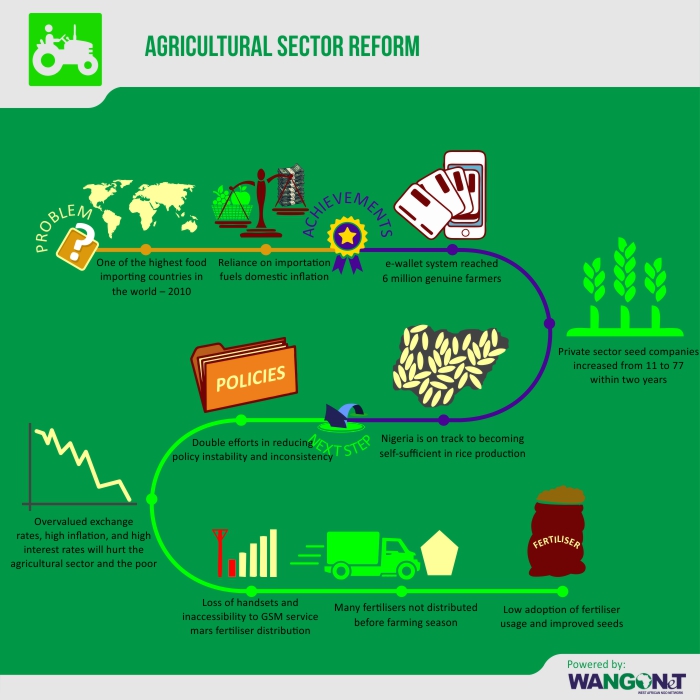Chapter 37
Agricultural Sector Reforms
Background
Nigeria is one of the highest food importing countries in the world. Estimates hold that it spends about ₦1.3 trillion annually on importing foods; but this at the cost of domestic inflation as the need to buy foreign currencies so as to pay for expensive food imports pressurise the local currency, the Naira, by making it to be more in abundance relative to the foreign currencies.
Past Reform and Achievements
In 2012, a Growth Enhancement Support Scheme (GES) ended government’s direct procurement and distribution of seeds and fertilizers, by hinging the distribution of government’s distribution of input subsidies on technology. Private sector dealers assumed the role, and now sell the inputs to farmers at subsidized rates to about 6 million farmers. To further involve the private sector in the agricultural reform, a private sector-led Nigerian Agribusiness Group (NAGB), was established to drive agribusiness developments and lead public-private policy dialogue.
Also as part of the scheme, government developed crop value chains, to facilitate the commercial development of priority crops. Key interventions in the value chain included the provision of adequate and good quality inputs, mechanization of staple-crop production, emphasis on value addition, development of staple crop processing zones, development of marketing corporations for cassava, cocoa cotton and grains crops, and improvement of farmers’ access to adequate credit such that total bank lending to farmers rose from close to 0% of all banks’ lending in 2011 to about 5% by 2013, with lending to seed companies and small farm input retailers rising from ₦ 3.5 billion in 2012 to ₦ 25 billion in 2013.
Challenges and Next Steps
Fertilizer distribution should be properly timed and done before the farming season. Extension services should be reinvigorated to influence farmers into adopting modern farming technologies. Agricultural policy inconsistency should be stopped. Climate change mitigation should be among the focus of the government, as agricultural production is transitioned to irrigated systems from the current rain-fed system.


